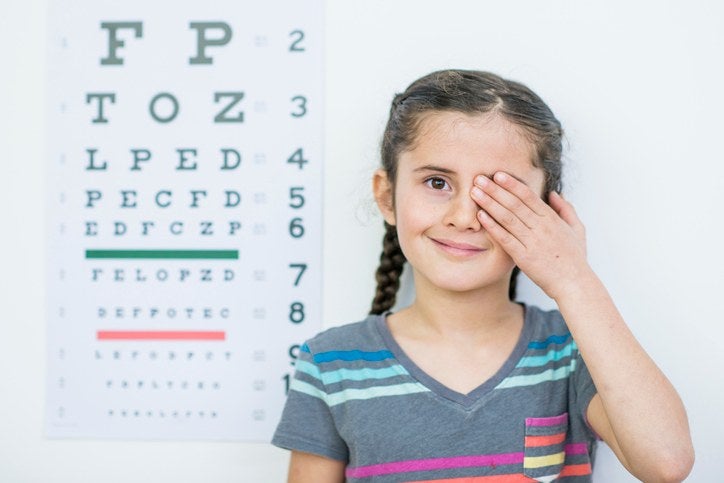Importance of Back-to-School Eye Exams

The to-do list is long when it’s time for kids to head back to school. There are supplies to buy, a wardrobe to replenish, teachers to meet, and bedtimes to resume. A physical is probably on your list, but it’s equally important not to skip the eye exam.
Why is it so important for kids to have regular eye exams? Good eyesight is important to learning, because 80 percent of what a child learns in school is taught visually. In order to function properly in school, a child needs good functioning:
- Near vision: the ability to focus on things two feet or less away from the eyes.
- Distance vision: the ability to clearly see things that are 20 feet away. Near vision and distance vision together are known as visual acuity.
- Binocular coordination: the ability of both eyes to work together. To determine binocular coordination, an eye doctor looks at a few different things.
- Eye-tracking: being able to keep the eyes on target when reading a book, looking from one object to another, or following a moving object.
- Fusion: being able to use both eyes together at once.
- Stereopsis: binocular depth perception.
- Convergence: the ability of the eyes to work as a team.
- Visual-motor integration: being able to transform images from a vertical to a horizontal plane.
- Eye focusing: maintaining accurate and clear vision at different distances. This is necessary for things like looking at from a paper on the desk to a board at the front of the room and back.
- Peripheral awareness: the ability to visually take in what’s going on in the world around us.
- Eye-hand coordination: using visual information to direct the hands when accomplishing tasks like drawing a picture or trying to hit a ball.
- Visual perception: being able to organize images on a page into letters, words, and ideas, understanding and remembering what’s being read.
Your child might not tell you if he or she can’t see well, and in fact, might not even realize that vision is the problem. That’s why it’s important for parents to be aware of signs of poor vision. These include:
- Squinting
- Rubbing eyes
- Sitting too close to the television
- Holding a book too close to read it, or running a finger along the words while reading
- Chronic redness or tearing
- Poor focusing or visual tracking
If your child is experiencing vision problems, it’s not the end of the world. It could just mean that your child needs glasses or contact lenses. A well-qualified eye doctor will be able to help you determine the best way to resolve any vision issues so that your child can be well-equipped to succeed in school. It’s recommended that children see an eye doctor for the first time at six months of age, then at age three, and just before they enter kindergarten. After that, school-aged children should have an eye exam at every year, or more often if they have vision problems.
If you’re looking for an ophthalmologist or optometrist in Derry, Londonderry or Windham, Spindel Eye Associates is here for you. Celebrating thirty-five years of eye care, we proudly provide our patients with personalized eye care, using top of the line technology. For more information or to schedule an appointment call 603.421.6536 or contact us through our website.
RECENT POSTS
categories
- Uncategorized
- Eye Exams
- Lasik
- Spindel Eye Reviews
- Cataracts
- Dry Eyes
- Refractive Errors
- Infographic
- Glaucoma
- Macular Degeneration
- Ocular Diseases
- Pulsed Light Therapy
- IPL
- eye care
- eye health
- Eye irritation
- Eye Syndrome
- Eye Doctors
- Diabetes
- Contacts
- LASIK Surgery
- dry eye syndrome Manchester
- Glasses
- Vision Care
- LipiFlow
- Contact Lenses
- Astigmatism
- Crizal Prevencia
- Spindel Eye
- Children
- skin cancer
- Sunglasses
- Eye Disease
